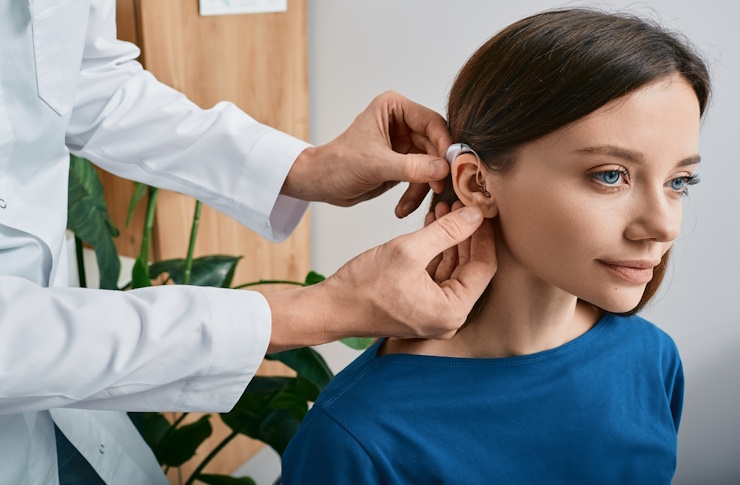2025 Hearing Aid For Pensioners In UK - Options And Prices
Pensioners in the UK have access to various hearing aid options through both the NHS and private providers, with costs ranging from free NHS services to premium private devices costing several thousand pounds. Understanding the available choices, eligibility criteria, and pricing structures can help older adults make informed decisions about their hearing health needs in 2025.

What Hearing Aid Options Are Available For UK Pensioners?
UK pensioners can choose between NHS hearing aids and private hearing aids, each offering distinct advantages. NHS hearing aids are provided free of charge through referral from a GP or hearing specialist, covering basic behind-the-ear and in-the-ear models with essential amplification features. Private hearing aids offer more advanced technology, including Bluetooth connectivity, noise reduction, and rechargeable batteries, with greater choice in size, style, and functionality.
The NHS typically provides digital hearing aids from established manufacturers, ensuring reliable performance for everyday hearing needs. Private options include premium brands offering cutting-edge features like smartphone app control, directional microphones, and personalised sound processing tailored to individual hearing loss patterns.
How Do 2025 Hearing Aid Features Benefit Pensioners?
Modern 2025 hearing aid technology incorporates several features specifically beneficial for older adults. Rechargeable batteries eliminate the need for frequent battery changes, particularly helpful for those with dexterity challenges. Advanced noise reduction technology improves conversation clarity in busy environments like restaurants or family gatherings.
Bluetooth connectivity allows direct streaming from televisions, phones, and tablets, enhancing entertainment and communication experiences. Many 2025 models include fall detection sensors and GPS tracking, providing additional safety benefits for pensioners living independently. Automatic program switching adapts to different listening environments without manual adjustment, making daily use more convenient.
Understanding 2025 Hearing Aid Prices In UK
NHS hearing aids remain free for UK residents, including pensioners, covering the device, fitting, follow-up appointments, and battery replacements. Private hearing aid costs vary significantly based on technology level and features, with basic models starting around £500 per ear and premium devices reaching £3,000 or more per ear.
Mid-range private hearing aids typically cost between £1,200 and £2,000 per ear, offering good balance between advanced features and affordability. Additional costs may include initial consultations (£50-£150), ongoing maintenance, and professional adjustments, though many private providers include these services in comprehensive packages.
| Provider Type | Device Category | Estimated Cost Range | Key Features |
|---|---|---|---|
| NHS | Standard Digital | Free | Basic amplification, behind-ear/in-ear styles |
| Specsavers | Essential Range | £495-£1,295 per ear | 4-year aftercare, basic technology |
| Boots Hearingcare | Advanced Models | £995-£2,495 per ear | Bluetooth, noise reduction, rechargeable |
| Hidden Hearing | Premium Technology | £1,495-£3,995 per ear | AI processing, smartphone control |
| Amplifon | Complete Solutions | £1,200-£3,500 per ear | Personalised fitting, ongoing support |
Prices, rates, or cost estimates mentioned in this article are based on the latest available information but may change over time. Independent research is advised before making financial decisions.
What Factors Should Pensioners Consider When Choosing Hearing Aids?
Lifestyle requirements significantly influence hearing aid selection for pensioners. Active individuals may benefit from water-resistant models with advanced noise management, while those primarily needing devices for home use might find basic amplification sufficient. Dexterity limitations may favour rechargeable options over traditional battery-powered devices.
Budget considerations extend beyond initial purchase costs to include ongoing maintenance, professional support, and potential upgrades. NHS options provide comprehensive long-term support without financial burden, while private purchases may offer extended warranties and premium customer service. Social activities, television watching habits, and phone usage patterns should inform technology level choices.
How Can Pensioners Access Hearing Aid Services?
NHS hearing aid access begins with GP consultation, leading to audiology department referral for hearing assessment and device fitting. This process typically takes 6-18 weeks depending on local service capacity. Private providers often offer same-day or next-day appointments, with comprehensive hearing tests and immediate device availability.
Many private providers offer home visit services, particularly valuable for pensioners with mobility limitations. Some high street retailers provide walk-in hearing tests and consultations, making initial assessments more accessible. Age UK and other charities provide guidance on navigating hearing aid options and accessing appropriate services.
Maintenance and Support Considerations
NHS hearing aid users receive ongoing support including repairs, replacements, and adjustments through local audiology departments. Battery supplies are typically provided free of charge, with postal delivery services available in many areas. Annual check-ups ensure devices continue meeting hearing needs as conditions change.
Private hearing aid maintenance varies by provider, with many offering comprehensive care packages including regular cleaning, adjustments, and repairs. Some providers include loss and damage insurance, particularly relevant for active pensioners. Understanding warranty terms and ongoing support availability helps ensure long-term satisfaction with hearing aid investments.
Pensioners in the UK have comprehensive hearing aid options available through both NHS and private providers, with technology advances in 2025 offering improved functionality and user experience. Whether choosing free NHS services or investing in premium private devices, understanding available options, costs, and support services enables informed decisions supporting better hearing health and quality of life.
This article is for informational purposes only and should not be considered medical advice. Please consult a qualified healthcare professional for personalized guidance and treatment.




